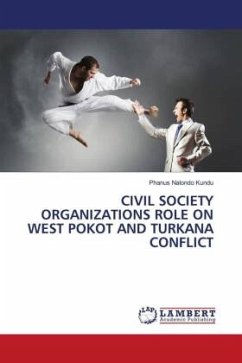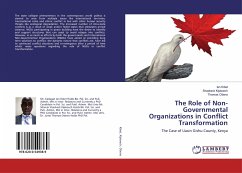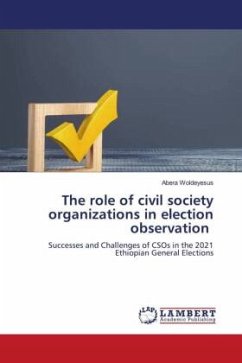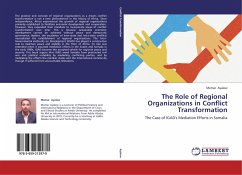
CIVIL SOCIETY ORGANIZATIONS ROLE ON WEST POKOT AND TURKANA CONFLICT
Versandkostenfrei!
Versandfertig in 6-10 Tagen
53,99 €
inkl. MwSt.

PAYBACK Punkte
27 °P sammeln!
Since independence, conflict scholars have argued that the previous Kenyan Government and by Extension Uganda, Sudan, The Southern Sudan and Ethiopia has ignored The north-western region of Kenya both politically and economically by the rest of the country. Characterized by droughts, starvations, ethnic conflicts and cattle raids, this territory is seen by the Kenyan government as a marginalized area, a space in "crisis" where violence has finally become commonplace. Almost every week, the national media reports increasingly frequent and intense conflicts: The Turkana pastoralists in Kenya are...
Since independence, conflict scholars have argued that the previous Kenyan Government and by Extension Uganda, Sudan, The Southern Sudan and Ethiopia has ignored The north-western region of Kenya both politically and economically by the rest of the country. Characterized by droughts, starvations, ethnic conflicts and cattle raids, this territory is seen by the Kenyan government as a marginalized area, a space in "crisis" where violence has finally become commonplace. Almost every week, the national media reports increasingly frequent and intense conflicts: The Turkana pastoralists in Kenya are regularly attacked by the inhabitants in West Pokot and vice versa, Ethiopian pastoralists, in raids around the water points of the region, The Karamojong without proper redress. The environmental, socio-economic and historical context is crucial in the understanding of the emergence of such conflicts (I). Moreover, these conflicts are systematically described as ethnic conflicts for the control of water points, and fight for water a view which simplifies reality.












